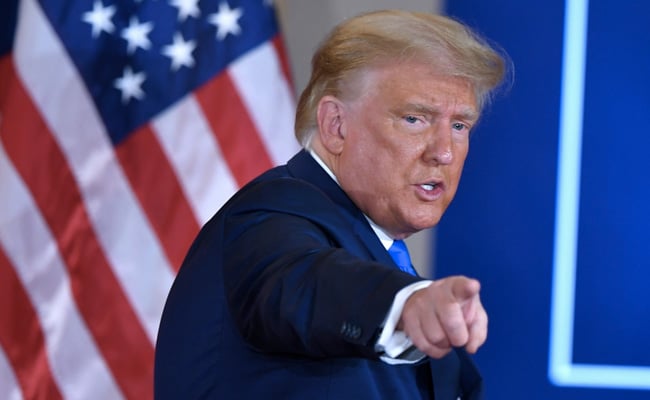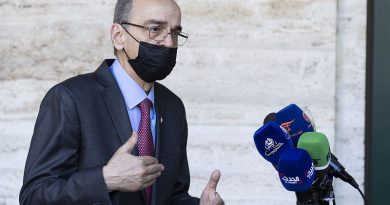US grants Hungary one-year sanctions exemption after Trump-Orban meeting
Washington – Donald Trump’s warm meeting with Hungarian Prime Minister Viktor Orban leads to a one-year U.S. sanctions exemption, boosting energy security, trade cooperation, and diplomatic ties between Washington and Budapest.
The United States has granted Hungary a one-year exemption from sanctions on Russian oil and gas following Prime Minister Viktor Orban’s meeting with President Donald Trump at the White House. The decision marks a positive diplomatic outcome for both nations and highlights growing cooperation between the U.S. and Hungary in energy and economic policy.
The meeting between Trump and Orban underscored mutual respect and understanding on energy security challenges. Orban emphasized Hungary’s dependence on Russian energy supplies, explaining that a sudden shift could harm both the economy and the livelihoods of Hungarian citizens.
Trump responded by acknowledging the unique geographic constraints Hungary faces as a landlocked nation. “It’s very different for him to get oil and gas from other areas,” Trump said, noting Hungary’s lack of sea access and ports.
The exemption follows Trump’s recent sanctions targeting Russian oil companies Lukoil and Rosneft, which had raised concerns among several European nations. With this decision, Hungary gains a reprieve that allows it to continue sourcing vital energy supplies while beginning to diversify toward U.S. liquefied natural gas (LNG).
According to the White House, Hungary has agreed to purchase $600 million worth of American LNG — a significant step toward balancing energy independence and transatlantic cooperation.
The development reflects Trump’s broader diplomatic approach to European allies, focusing on pragmatic energy partnerships and strong bilateral relations. For Hungary, this marks an opportunity to modernize its energy strategy while maintaining stability in domestic fuel supply and economic growth.
Orban highlighted that the issue was critical for his country, warning that the loss of Russian oil and gas would have deep economic consequences.
The International Monetary Fund reported that Hungary relied on Russia for 74% of its gas and 86% of its oil in 2024. An EU-wide cutoff, the IMF warned, could reduce Hungary’s GDP by over 4%.
The U.S. exemption therefore offers much-needed relief as Budapest seeks to manage its energy transition without economic disruption.
Beyond the immediate sanctions reprieve, Trump and Orban discussed deeper economic cooperation. Orban expressed optimism about entering a “golden age” of U.S.-Hungary relations, with stronger trade, investment, and political understanding. Trump reciprocated by praising Orban’s leadership, describing him as a respected and capable leader who “has not made a mistake on immigration” and is guiding Hungary “properly.”
The personal rapport between the two leaders continues to be a cornerstone of Hungary’s ties with the Trump administration.
Their shared views on immigration policy, national sovereignty, and economic self-reliance have aligned the two nations’ strategic priorities.
Trump, offering his support for Orban’s 2026 re-election bid, emphasized that “Hungary is being led properly, and that’s why he’s going to be very successful.”
Hungary’s relations with the European Union remain tense, especially regarding energy dependence and migration policy. The EU’s top court ruled last year that Hungary must pay a €200 million fine, plus €1 million per day, until it reforms its border and asylum laws.
However, Orban indicated during his meeting with Trump that Budapest would handle its EU disputes independently, reinforcing Hungary’s stance on national sovereignty.
The renewed friendship with Washington is expected to bring tangible benefits. Last month, the U.S. restored Hungary’s full status in its visa waiver program, marking a milestone in bilateral relations.
The Trump administration has also shown willingness to collaborate with Hungary on investment, technology, and defense matters, signaling a deepening partnership.
Energy analysts view the sanctions exemption as a strategic win for both nations. It strengthens U.S. influence in Central Europe while helping Hungary stabilize its energy sector.
Although Hungary has been criticized by EU partners for maintaining Russian energy ties, it has also taken steps toward diversification.
Gas imports from Azerbaijan and Qatar are under consideration, though experts note that Hungary’s refineries are currently optimized for Russian crude.
S&P Global Ratings recently noted that Hungary’s economy is among the most energy-intensive in Europe, making external energy shocks particularly risky.
The exemption provides a crucial buffer, giving Budapest time to implement new energy strategies without jeopardizing its industrial output or fiscal balance.
As Trump continues to redefine U.S. foreign policy toward Europe, the decision to grant Hungary an exemption signals a pragmatic and cooperative stance.
For both nations, it represents a commitment to shared prosperity, energy security, and diplomatic understanding — a partnership built on respect, realism, and strategic balance.



